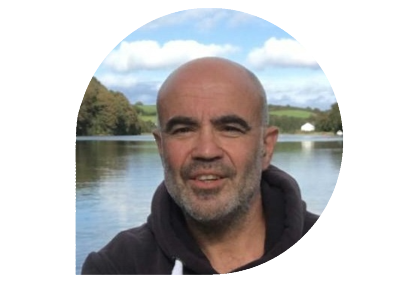In 2017 Cetti's warblers (pronounced 'chetty') sang across a large area of land south of the A46 near Coventry. Described rather unfalteringly by the RSPB as ‘small and rather undistinctive’, Cetti's warblers are shy birds with a beautiful song that like to skulk about in patches of scrub and long grass. There was plenty of that present along with reedbeds, wetlands, veteran trees and so many other species of rare plants, mosses, lichens, along with a large number of rare invertebrates, especially bees, wasps and beetles, that the site had been identified as important within the local landscape and county of Warwickshire. Some of the species were legally protected. For example, Cetti's warblers receive a high level of protection under Schedule 1 of the Wildlife and Countryside Act 1981.
In 2018 Roxhill received planning permission to develop 150 hectares, meaning an area almost the size of Coombe Abbey park, called Segro Park Coventry, is now an industrial, logistics, warehouse, ‘Big Box’ estate with lots of car parks and roads. To secure their planning permission Roxhill agreed with Warwick District Council to pay Warwickshire County Council enough money to compensate for the loss of biodiversity they would cause. In fact, not just to make good that loss but to improve it by paying for the creation of new ‘extra’ habitats. Everyone’s intention in 2018 was for the development to create more wildlife than it destroyed – for it to be biodiversity positive not negative. This was a key factor for us here at Warwickshire Wildlife Trust when we were consulted on the plans.
Early in 2021 a first payment of £700,000 was made to Warwickshire County Council, some years after the site had been ecologically destroyed. Another £140,000 remains unpaid but will become due when an agreed level of occupancy is reached at the site. Warwickshire County Council have tried to use the money for nature restoration, and that included talking to Warwickshire Wildlife Trust. Unfortunately we could not take the money as, among other reasons, we did not have land suitable for the required habitat creation within the budget of the payment. A sum fixed in 2018 was no longer enough to cover costs several years later and into the future. Habitat creation is, after all, a long-term business and the payment is needed to cover decades of costs.
And there lies the real problem. According to the Bank of England's inflation calculator, the first payment has lost about £150,000 of its value since 2018. What’s more, Warwickshire County Council need to use part of the payment to cover their own administrative costs so less is available for work which seven years later has yet to even start. As time goes on it seems inevitable that a potentially biodiversity-positive scheme will actually deliver a huge loss of wildlife.
This matters more widely than just Warwickshire. The Planning and Infrastructure Bill currently passing through parliament is being framed by Government as a remedy for poor economic growth and nature’s decline. Part 3 of the Bill sets out a new plan to streamline current rules by creating a simple 'nature restoration fund' which developers can pay into, via a one-off levy, in order to account for the damage they may inflict on wildlife and nature. The intention is that this would enable Natural England and partners to deliver nature restoration at speed and scale. However, in her excellent blog my colleague Debbie Tann explains the difficulties which Natural England will face in making this a reality.
No doubt there are some examples of this approach working. But nature needs it to work everywhere, every time. The worrying evidence from Warwickshire is that it can easily fail even when everyone involved does exactly what they should do. Warwick District Council struck an innovative agreement with Roxhill, who paid up what they had agreed. Warwickshire County Council accepted the responsibility for receiving and distributing the funds and have tried to do so. But it is far from simple to find a willing partner with a suitable receptor site who is able to receive the funds and use them for habitat creation. So nothing has happened and as each year passes it becomes less and less likely that anything will. This is why we are calling on the Government to think again.
Here in Warwickshire another developer has presumably gotten richer, but despite good intentions nature has definitely got poorer. As have the people who used to hear Cetti's warblers sing just south of Coventry.


